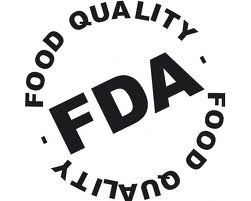 At the start of May, the Food and Drug Administration (FDA) removed all Korean certified shippers of molluscan shellfish (oysters, clams, mussels, and scallops) from the Interstate Certified Shellfish Shippers List (ICSSL), and since has advised food distributors, stores and restaurants to pull Korean shellfish from the market. The ban on Korean shellfish includes items such as Oysters, clams, mussels, and scallops from Korea.
At the start of May, the Food and Drug Administration (FDA) removed all Korean certified shippers of molluscan shellfish (oysters, clams, mussels, and scallops) from the Interstate Certified Shellfish Shippers List (ICSSL), and since has advised food distributors, stores and restaurants to pull Korean shellfish from the market. The ban on Korean shellfish includes items such as Oysters, clams, mussels, and scallops from Korea.
The decision and subsequent warning was issued after a comprehensive FDA evaluation which found that the Korean Shellfish Sanitation Program (KSSP) was not in compliance with the sanitation controls spelled out under the National Shellfish Sanitation Program. According to the FDA’s evaluation, the KSSP was found to have a substantial amount of shellfish growing area deficiencies including:
– ineffective management of land-based pollution sources that can impact shellfish growing areas;
– inadequate sanitary controls to prevent the discharge of human fecal waste from fish farms and commercial fishing and aquaculture vessels operating in and adjacent to shellfish growing areas; and
– detection of norovirus in shellfish growing areas analyzed by FDA during the evaluation
The FDA went on to report that, due to the improper sanitation controls, their was a stong likelihood that the molluscan shellfish harvested from Korean waters may have been exposed to human fecal waste and therefore have the potential to be contaminated with norovirus, a group of viruses that cause gastroenteritis.
“Symptoms of illness associated with norovirus include nausea, vomiting, diarrhea, and stomach cramping. Affected individuals often experience low-grade fever, chills, headache, muscle aches and a general sense of tiredness. Most people show symptoms within 48 hours of exposure to the virus. The illness typically lasts one to two days. Norovirus is usually not life-threatening and does not generally cause long-term effects.”
In a move to prevent the importation of the potentially contaminated Korean shellfish, the FDA removed Korean shellfish shippers from the ICSSL. The FDA warns that contaminated shellfish may already be in the market. According to the agency, “Korean molluscan shellfish that entered the United States prior to May 1 and any product made with Korean molluscan shellfish are considered adulterated under the Federal Food, Drug, and Cosmetic Act.”
To prevent an outbreak of illness, the FDA recommends that food distributors, retailers, and food service operators remove from sale or service, all fresh, frozen, and processed (including canned) Korean molluscan shellfish and any product subsequently made with them. Korean molluscan shellfish represents only a small fraction of the oysters, clams, mussels, and scallops sold in the United States.
The FDA advice for consumers is to check the label on packaged (bagged, boxed, canned, etc.) seafood to see if it is from Korea. If it is not clear where the product is from, consumers can call the manufacturer to find out. Molluscan shellfish from Korea and products made with molluscan shellfish from Korea should be thrown out.
Source: U.S. Food and Drug Administration (FDA)
![Herbal Reference Substances are Key to Everyday Products <!-- AddThis Sharing Buttons above -->
<div class="addthis_toolbox addthis_default_style " addthis:url='http://newstaar.com/herbal-reference-substances-are-key-to-everyday-products/3512112/' >
<a class="addthis_button_facebook_like" fb:like:layout="button_count"></a>
<a class="addthis_button_tweet"></a>
<a class="addthis_button_pinterest_pinit"></a>
<a class="addthis_counter addthis_pill_style"></a>
</div>When it comes to quality control testing and the development of new products, Botanical Reference Materials (BRMs), also known as Herbal References are critically important. To help companies ultimately obtain all-important FDA approval, the Food and Drug Administration provides in its guidance a recommendation that […]<!-- AddThis Sharing Buttons below -->
<div class="addthis_toolbox addthis_default_style addthis_32x32_style" addthis:url='http://newstaar.com/herbal-reference-substances-are-key-to-everyday-products/3512112/' >
<a class="addthis_button_preferred_1"></a>
<a class="addthis_button_preferred_2"></a>
<a class="addthis_button_preferred_3"></a>
<a class="addthis_button_preferred_4"></a>
<a class="addthis_button_compact"></a>
<a class="addthis_counter addthis_bubble_style"></a>
</div>](http://newstaar.com/wp-content/uploads/2021/02/Achillea_millefolium_flowers-100x100.jpg)
![Quality Electrochemical Biosensors are Critical for Medical, Food and Chemical Industry <!-- AddThis Sharing Buttons above -->
<div class="addthis_toolbox addthis_default_style " addthis:url='http://newstaar.com/quality-electrochemical-biosensors-are-critical-for-medical-food-and-chemical-industry/3512086/' >
<a class="addthis_button_facebook_like" fb:like:layout="button_count"></a>
<a class="addthis_button_tweet"></a>
<a class="addthis_button_pinterest_pinit"></a>
<a class="addthis_counter addthis_pill_style"></a>
</div>A number of industries have, at their core, a need to frequent or even continuous analysis of biological media. These include the medical and pharmaceutical fields, biotech firms, and food and chemical companies. To maintain quality standards and develop new products, these industries rely heavily […]<!-- AddThis Sharing Buttons below -->
<div class="addthis_toolbox addthis_default_style addthis_32x32_style" addthis:url='http://newstaar.com/quality-electrochemical-biosensors-are-critical-for-medical-food-and-chemical-industry/3512086/' >
<a class="addthis_button_preferred_1"></a>
<a class="addthis_button_preferred_2"></a>
<a class="addthis_button_preferred_3"></a>
<a class="addthis_button_preferred_4"></a>
<a class="addthis_button_compact"></a>
<a class="addthis_counter addthis_bubble_style"></a>
</div>](http://newstaar.com/wp-content/uploads/2020/10/Electrochemical-Biosensor-100x100.jpg)
![Company Develops Industrial Mixers Well-Suited for both Fragile and Explosive Products <!-- AddThis Sharing Buttons above -->
<div class="addthis_toolbox addthis_default_style " addthis:url='http://newstaar.com/company-develops-industrial-mixers-well-suited-for-both-fragile-and-explosive-products/3512071/' >
<a class="addthis_button_facebook_like" fb:like:layout="button_count"></a>
<a class="addthis_button_tweet"></a>
<a class="addthis_button_pinterest_pinit"></a>
<a class="addthis_counter addthis_pill_style"></a>
</div>Industrial drum mixers are normally applied to blend mixes of varying viscosities such as adhesive slurries or cement. Some of these mixers have the capability of blending mixes of very different particle sizes such as fruit and ice cream, and gravel and cement slurry. The […]<!-- AddThis Sharing Buttons below -->
<div class="addthis_toolbox addthis_default_style addthis_32x32_style" addthis:url='http://newstaar.com/company-develops-industrial-mixers-well-suited-for-both-fragile-and-explosive-products/3512071/' >
<a class="addthis_button_preferred_1"></a>
<a class="addthis_button_preferred_2"></a>
<a class="addthis_button_preferred_3"></a>
<a class="addthis_button_preferred_4"></a>
<a class="addthis_button_compact"></a>
<a class="addthis_counter addthis_bubble_style"></a>
</div>](http://newstaar.com/wp-content/uploads/2020/06/bandeau-sofragir2-100x100.jpg)